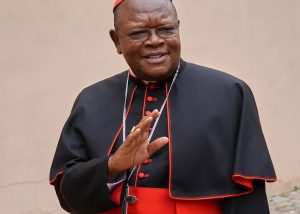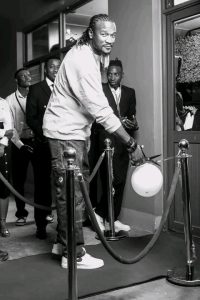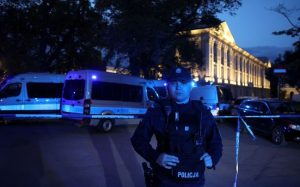Senegal police fire tear gas at protest against election postponement
3 min readSenegal’s National Assembly was rocked by turmoil on Monday as riot police clashed with protesters opposing the government’s decision to postpone the country’s presidential election. The protest erupted after President Macky Sall’s government announced that the election, originally scheduled for February 25, would be moved to August 25, extending Sall’s mandate. This unprecedented move has sparked widespread criticism and anger from opposition groups, civil society organizations, and ordinary citizens.
The controversy centers around a bill that proposes the delay of the election, a decision that departs from Senegal’s longstanding reputation for stable and timely elections. The announcement that the election would be postponed has raised concerns that the political climate could become increasingly volatile, especially as the country has already seen unrest over Sall’s potential bid for a third term and the exclusion of prominent opposition figures from the presidential race.
Outside the National Assembly, around 100 protesters gathered to voice their anger over the postponement. Riot police, armed with tear gas, were deployed to disperse the crowd, and several arrests were made during the incident. The clash is seen as a reflection of growing dissatisfaction with the government’s handling of the electoral process and the extension of Sall’s time in office. The African Union, along with regional bodies and Western governments, has called for the swift announcement of a new election date to avoid further political instability.
The decision to delay the election has sparked fears of violent protests, reminiscent of previous unrest in the country. These earlier protests were fueled by concerns that President Sall, who had already served two terms, would attempt to run for a third. Additionally, opposition leader Ousmane Sonko has been sidelined from the election process, adding to the frustrations and grievances of many Senegalese citizens.
President Sall defended the postponement, attributing it to a dispute over the candidate list and allegations of corruption within the constitutional body that handles the electoral process. This has added fuel to the fire, with many accusing the government of manipulating the political system to exclude certain candidates and prolong Sall’s presidency. Sonko and other opposition figures have been barred from running, contributing to accusations that the government is suppressing political opposition and undermining the democratic process.
Opposition groups have strongly rejected the decision to delay the election, calling it an “institutional coup” that undermines Senegal’s democratic values. Several presidential hopefuls have vowed to continue their campaigns, despite the delay, while others have threatened to challenge the postponement in court. The move has become a rallying point for the opposition, who are calling for an immediate resolution and for the election to proceed as originally scheduled.
The unrest continued on Sunday, when protests in the capital city of Dakar were broken up by riot police, who used tear gas and detained at least two female presidential candidates. The crackdown on peaceful protests has further fueled tensions, as many feel that the government is using force to suppress dissent and curtail free expression. In addition to the police action, the authorities also took the drastic step of shutting down a local television station, Walf, which had been covering the protests. Walf reported that its license was revoked, a move that has been widely criticized as an attempt to stifle independent media and control the narrative surrounding the political crisis.
The situation remains tense as Senegal faces a critical moment in its history. The country, once hailed as a beacon of democratic stability in West Africa, is now grappling with significant political turmoil. The election delay, coupled with the crackdown on protests and media, has raised alarm both domestically and internationally. There are growing concerns that the political unrest could escalate into more widespread violence if the government does not take steps to address the grievances of opposition groups and the general public.
As Senegal prepares for what promises to be a turbulent few months, many are calling for a peaceful resolution to the crisis and a commitment to uphold the democratic principles that have guided the country for decades. The postponement of the election and the actions of the government have cast a shadow over Senegal’s reputation as a stable democracy in the region, and the world will be watching closely to see how the situation unfolds in the coming months.






